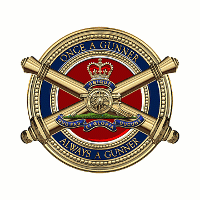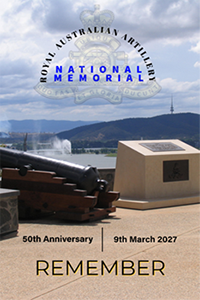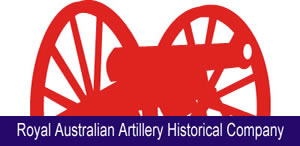|
||||||||||||||||||||||||||||||||||||||||||||||||||||||||||||||||||||||||||||||||||
| Have a Question / Feedback ? | Submit- only questions about this website will be answered | Search Our Site |
|
| AUSTRALIAN GUNNER OBITUARY RESOURCE |
| |||
 |
|
|
||||||
| (Transcribed and adapted by Peter Bruce, OAM) | ||||
| Print Version | ||||||||||||
 |
It was appropriate that the service for General Sir John Gordon Noel Wilton was held in the chapel of the Royal Military College, for Duntroon was part of the life of Wilton and his family. In December 1980, had he been in good health he would have attended the graduation Parade at RMC; the fiftieth anniversary of his own graduation. Only twelve cadets graduated in 1930: four into the Australian Army, four into the Royal Australian Air Force and four, of which he was one, into the British Army. He started his service in the British Army as a Second Lieutenant in the Royal Artillery (RA). During his time in the RA, Wilton saw service in the UK, India and Burma. It was in Burma where he became familiar with the problems of jungle operations in South East Asia. Wilton stayed with the RA for eight years before returning to Australia to join the Second Australian Imperial Force.
Early in World War II Wilton served with the Coast Artillery at North Head and later at Port Kembla until May 1940 when, as a Major, he was posted to the 2/4th Field Regiment. Wilton served with the 2nd AIF in the Middle East in 1940/41. In mid June 1941, during the 7th Division’s advance into Syria, he played a significant role as Brigade Major, in helping to stem a strong French counter attack at Merdjayoun which threatened the communications of the advancing Australians. Wilton’s quick and cool orders for the attack which drove the French out of Merdjayoun were a model of clarity and tactical soundness. Wilton later served in New Guinea in 1942 and 1943. As senior operations staff officer to Major General (later Lieutenant General Sir Stanley) Savige, General Officer Commanding the 3rd Division, Wilton played a major role in planning and directing the advance on Salamaua in mid 1943. This campaign was marred by difficult relations between American and Australian forces and Wilton, on several occasions, had to arbitrate disputes over who was responsible to whom. He completed the 3rd Division’s part in what Savige described as the “toughest operation problem I ever faced” with high praise for his skill and courage. |
|||||||||||
Wilton then was then selected for the Australian Military Mission, Washington, gaining insights into the complexities of wartime diplomacy, strategic coordination and logistic planning. He returned to Headquarters, Australian Military Forces, South-West Pacific area, as Colonel General Staff in 1945. In 1946 Wilton became Deputy Director of Military Operations at Army Headquarters and in 1947 became Director of Military Operations and Plans for the following four years. In July 1950, he was the second senior member of the Bridgeford Mission which investigated ways in which Australia might assist Britain in controlling the Malayan emergency. Wilton led another mission to Malaya in February 1951. He warned the British that if they did not maintain sufficient forces in Malay for dealing with internal security problems, Australia would be unlikely to assist with defence against external attack. After attending the Imperial Defence College, London in 1951 and 1952, Wilton was selected for the Army’s key operational Command, the 28th British Commonwealth Brigade in Korea. In March 1953, he relieved Brigadier (later Lieutenant-General Sir Thomas) Daly, reversing a situation of 10 years earlier when Daly had relieved Wilton at Tambu Bay and took command of a composite brigade of Australian, British, Indian and New Zealand units. His Divisional Commander, Major General West, regarded Wilton as an outstandingly good Brigade Commander. In the four months of operations after Wilton’s arrival, the Brigade restored a potentially disastrous situation created by an American force which had relieved it for some two months on the Jamestown Line. A determined and skilful patrol policy drove the Chinese back from the allied front line and re-established Commonwealth control over no-man’s land. Fearing for the stability of the Commonwealth Division’s left flank during Chinese sledgehammer attacks in June and July 1952, West ordered Wilton to take over the defence of The Hook, a vital ridge between the Samichon and Imjin Rivers. The line was held. On his return from Korea, Wilton rose steadily through senior positions in Army Headquarters and, as a Major General, was Commandant of Duntroon from 1957 to 1960. Wilton was for many years a firm advocate and pioneer of the Tri-Service Academy. His influence at the College and the Academy remains until this day Wilton was appointed Chief of the Southeast Asia Treaty Organisation (SEATO) military planning office in Bangkok from 1960 to 1963. He was appointed Chief of the General Staff in 1963 and assumed the responsibilities which accompanied Indonesia’s confrontation of Malaysia, the development of Papua New Guinea’s defences, the introduction of conscription and the undertaking of a major commitment to the Vietnam War. He discharged these tasks with such skill that in 1966 he was appointed the most senior service position of that time as Chairman of the Chiefs of Staff Committee. In 1968 he became the fourth Australian Army Officer, after Chauvel, Monash and Blamey to attain the rank of full General. He retired in 1970 and in 1973 was appointed by the Whitlam Government as Australian Consul General in New York for two years. At the height of his career from 1963 to 1970, he had to face some extremely difficult problems, principally concerned with the war in Vietnam. He fought hard to obtain a separate area of operations in Vietnam for Australia, out of concern that the Americans did not know how to fight insurgency in South-East Asia. He had to give leadership to forces which, after the 1968 Tet Offensive, were inclined increasingly to question the worth of their efforts. His family was split by the generational conflict which the Vietnam War caused throughout the west. Wilton was awarded the Distinguished Service Order (DSO) on 27 April 1944 serving in the South West Pacific in the Second World War. For his war service he was subsequently appointed an Officer of the Order of the British Empire (OBE) on the 6th of March 1947. In the 1962 Queens Birthday Honours Wilton was appointed Companion of the Order of the Bath (CB). In the 1964 New Years Honours he was appointed as Knight Commander of the Order of the British Empire (KBE) for service as Chief of the General Staff. Wilton was also the recipient of the Legion of Merit from the United States Government.
|
||||||||||||
 |
||||
webmaster@artilleryhistory.org





